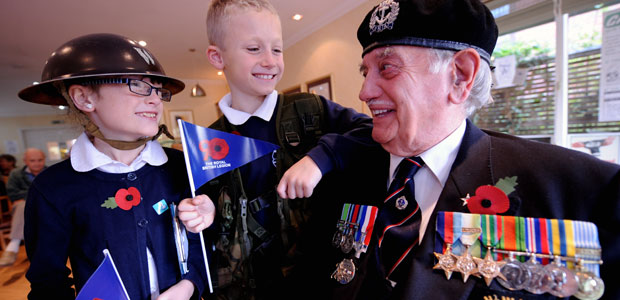
THESE DAYS, the impact of war is thankfully well understood by the mainstream. Remembrance ceremonies happen in many countries including the UK, US and Australia. But with militaria collecting also mainstream, does it glorify war or help remember?
WARSTUFF remembrance of wars past and presentYOU COULD ARGUE that more not less should be done to remember those who sacrificed all. Collecting militaria is one way to remember. It allows the collector to come into physical contact with military history and with those who participated in it. It is an experience to read on a certain aspect of say, WW1 history or hear the Great War stories and then be able to hold or own an item that was actually there.
But does collecting militaria glorify war?
THE HISTORIAN’S VIEW
Understanding conflicts and the events that took place around them helps us understand why many things are as they are today, and where today’s circumstances could take us if we are not mindful. For many, there is an immediate or personal family connection to the war – collecting can preserve the memory of their family’s significant contributions. It can also help them connect and reconcile events that were directly or indirectly significant in their personal histories. Importantly, for the younger generations, and with veterans of the two world wars moving on, collecting can help educate and crucially pass on the key learnings from those chapters in history to avoid a repeat.
THE HEROISM VIEW
For those who grew up with the “Boy’s Own” culture in Britain, where improbable or daring endeavours were published to instil certain morals during the formative years, military conflict and collecting militaria was associated with heroism. And why not? There are numerous events in history where individuals have demonstrated extreme valour and self-sacrifice in the face of the enemy. Heroic attributes are godly, morally excellent, and for the greater good of humanity. As such, possessing items connected with the events are highly prized. It allows the individual to associate themselves with the glory of that event.
THE VICTIM’S VIEW
But these views are not the views of everyone. As we are well aware, military veterans and often civilians may have directly or indirectly experienced unforgettable, unforgivable, tragic, and criminal events that change the way they view the world and the way they can live their lives. Some argue governments also like to sanitise views of war to make their political agendas easier to execute. For these victims, collecting militaria understandably may seem disrespectful, and an unwelcome reminder of past events, or political agendas that they struggle to accept, reconcile or deal with.
So is there a right view? Put simply, no. We struggle with all these views and the variations of them. Victims are also heroes. For some people, collecting militaria does glorify war. For others collecting relics is part of the great gesture and tribute the nation feels for all of its valiant soldiers for fighting for justice and peace, whether with a personal connection or not. For some, collecting militaria is simply a questionable and dubious interest.
The important point to remember that we, as militaria collectors, are mindful of all sentiments. The fact remains that no civilised society, including their soldiers, can ever feel happy over the bloodshed and destruction in wars, but such is the nature of humanity, sometimes it becomes absolutely necessary to wage a war against senseless killers of innocent people. We need to take pride in the conduct of our fellow man doing the right thing.And, whichever camp of thought you are in, collecting militaria, the like of which you can find through our service is a great way to take pride, pay tribute and remember the personal events and sacrifices, and wish for a peaceful world.
Lest we forget.

